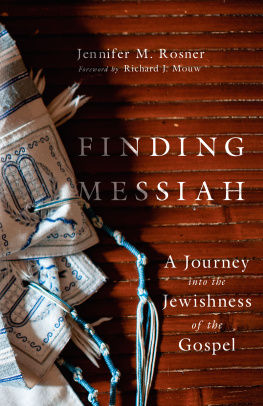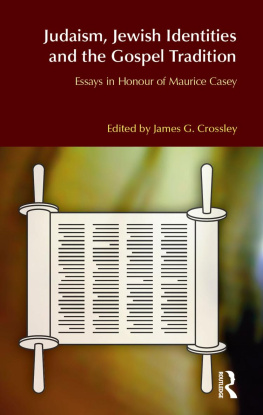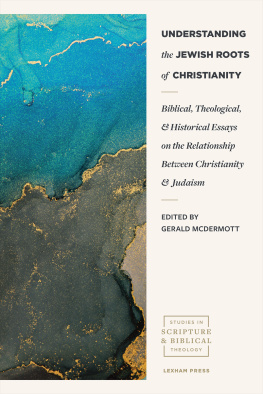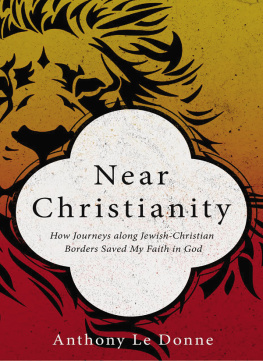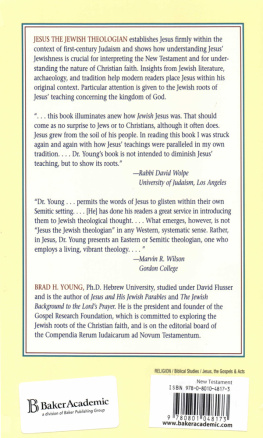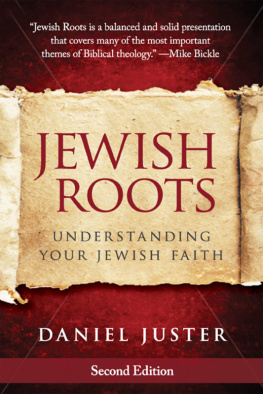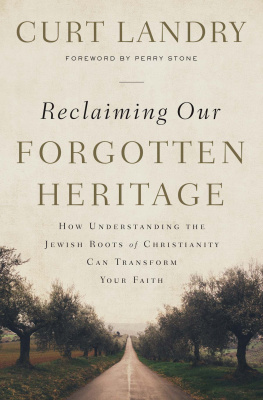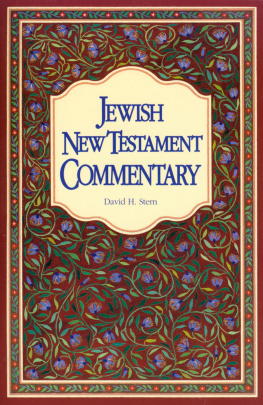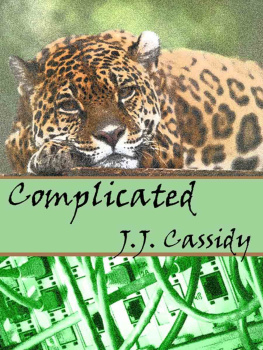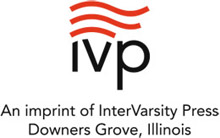Sommaire
Pagination de l'dition papier
Guide
FINDING
MESSIAH
A Journey
into the
Jewishness
of the
Gospel
Jennifer M. Rosner
Foreword by Richard J. Mouw
InterVarsity Press
P.O. Box 1400, Downers Grove, IL 60515-1426
ivpress.com
2022 by Jennifer Marie Rosner
All rights reserved. No part of this book may be reproduced in any form without written permission from InterVarsity Press.
InterVarsity Pressis the book-publishing division of InterVarsity Christian Fellowship/USA, a movement of students and faculty active on campus at hundreds of universities, colleges, and schools of nursing in the United States of America, and a member movement of the International Fellowship of Evangelical Students. For information about local and regional activities, visit intervarsity.org.
All Scripture quotations, unless otherwise indicated, are taken from The Holy Bible, New International Version, NIV. Copyright 1973, 1978, 1984, 2011 by Biblica, Inc.Used by permission of Zondervan. All rights reserved worldwide. www.zondervan.com. The NIV and New International Version are trademarks registered in the United States Patent and Trademark Office by Biblica, Inc.
While any stories in this book are true, some names and identifying information may have been changed to protect the privacy of individuals.
The publisher cannot verify the accuracy or functionality of website URLs used in this book beyond the date of publication.
Cover design and image composite: David Fassett
Image: tallit image Erin Ebright
ISBN 978-1-5140-0325-1 (digital)
ISBN 978-1-5140-0324-4 (print)
This digital document has been produced by Nord Compo.
This book is dedicated to my parents,
whose love and support for us truly know no bounds.
MOM,
you are not afraid to ask the hard questions of faith
and you never fail to fill my children with wonder.
DAD,
you daily model humility and integrity, and
you always make time for one more game of Candyland with the kids.
To both of you, we are so very grateful.
FOREWORD
Richard J. Mouw
A s I read Jen Rosner tell her unfolding story about what her Jewishness means for her faith in Christ, I was prompted to reflect on my own life and journey. I found myself thinking back to key moments and relationships that have shaped my understanding of the important topics she explores.
The first relationship I could remember occurred when, as a thirteen-year-old Boy Scout, I formed a special friendship with Bobby Silverstein, the only Jewish kid in the troop. Every one of our Scout meetings began with all of us citing the Scout Law together. For most of the others that seemed to be a perfunctory exercise, but Bobby and I liked to talk about what the list of virtues we recited meant for our young lives. Bobby once told me that he did not know why God would require that a Jewish Boy Scout be cheerful, given all the horrible things the Nazis had done to Jewish people. I agreed with him, and I decided that God was asking me to be distressed by that also.
Other friendships I had experienced along the way kept coming up as I read Jens book. But the big theological topic that she has forced me to think about more deeply than I have wanted to is replacement theology. I had once endorsed this perspective in something I had written, where I observed that the apostle Peter refers to the New Testament church as a chosen race and holy nation, thus taking images that had once applied to the ancient Israelites and now reassigning them to the community of Gentile and Jewish followers of Jesus. This meant, I had argued, that we Christians are now, as the new Israel, the beneficiaries of the covenantal blessings that had once been promised to the old Israel.
After making that case in the 1970s, I began to question those replacement ideas. Much of the change in my thinking was simply finding myself learning from Jewish sources: Chaim Potoks novels, Martin Bubers ethical writings, Abraham Joshua Heschels rich expositions of the Bibles prophetic literature, and illuminating thoughts over kosher lunches with rabbi friends. Gradually I began to think of Gods covenant with Gentile Christians, not as replacing the older covenant with Israel, but that the church has been grafted onto Gods ancient covenant people.
That was an important shift for me, but I did leave a lot of things hanging. Some of the key issues I chose to ignore were being raised by Messianic Jews, but I found them too complex to wrestle with. What about Jewish followers of Yeshua who observe the Torahs commandments to the Jewish people, understanding them to be enduring and not replaced by new covenant particulars? How should the evangelical community relate to Messianic Jews? How did the early Christians understand their practice of continuing to worship in synagogues? And, what in the world was Paul getting at in Romans 9?
I had been content to leave all of that hanging, but as I read Jens book, I realized that she was not going to let me off the hook on any of it. The fact that her wrestling with these issues has meant for her complex and at times deeply painful struggles forced me to do some serious wrestling of my own.
I met Jen for the first time when she began her doctoral studies at Fuller Seminary. She told me that as a Jewish follower of Jesus she was interested in using Karl Barths theology to explore issues in Judaism. When I casually asked her if she saw herself as a Messianic Jew, she paused a bit before responding that this was becoming a big question in her life.
Further along in her time at Fuller, I became aware of the difficulties she facedand agonized overas a student participant in interfaith events for seminary students, where Jewish-Christian relations were an intentional focus. But mainly I watched her from a distance, reading some of her dissertation-related research papers where she critically engaged the views of Jewish and Christian scholars.
Now, following her journey in these pages, I see how engaging these theological issues has affected her, not only as a gifted doctoral student but also as a teacher, a wife, a motherand as a member of the Jesus-following Jewish community, which has regularly been seriously misunderstood, theologically and spiritually, by both Christians and Jews.
So, yes, Jen Rosner has forced me to face issues that I have long been willing to ignore, and I will now continue to face. I am confident that her wonderful book will motivate others to make the journey also. Jen still has questions that she is pursuing, so it has to be a continuing journey for all of us. For now, though, I can express deep gratitude that she has prodded me to take some new steps along the path!
INTRODUCTION
On Being Monstrous
It is monstrous to talk of Jesus Christ and to practice Judaism.
IGNATIUS OF ANTIOCH
S t. Johns Episcopal Church is a brown stone building that stands unassumingly on the corner of Orange Street and Humphrey Street in New Haven, Connecticut, a six-block walk from my apartment. I had tried several different churches since moving to New Haven the previous year, none of which felt like a particularly good fit. I was intimidated about attending St. Johns, as a number of my professors from Yale Divinity School worshiped there, and it felt awkward to casually chat with them over coffee cake after the service, all the while secretly wondering if they had read my research paper yet and if I had accurately characterized the theology of Karl Rahner.

